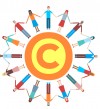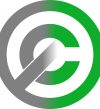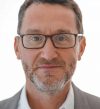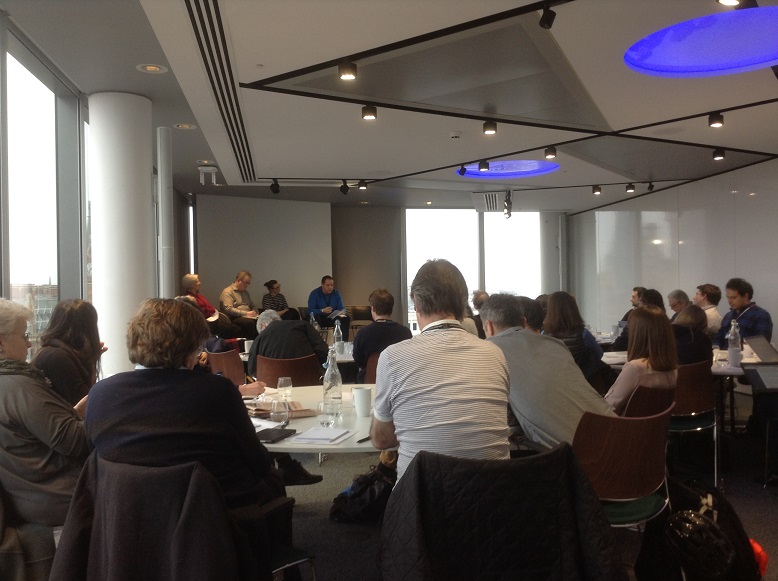
Post by Bartolomeo Meletti, Lead Producer of CopyrightUser.org, a co-production between CIPPM (Bournemouth University) and CREATe (University of Glasgow).
On Thursday 19th March 2015, the Digital Catapult Centre hosted the second in the series of workshops entitled ‘Understanding UK Copyright Law’, a joint initiative of the Digital Catapult, CREATe, CopyrightUser.org, and the Copyright Hub. The purpose of these workshops is to provide useful guidance about copyright to different sectoral groups of the creative industries, starting from the questions and concerns that these groups have. The first workshop of the series was held at the Digital Catapult Centre on 3rd December 2014, and was addressed to photographers and illustrators. On 19th March, the focus was on the music sector and the event attracted more than 40 attendees from London and across the UK, consisting mainly of songwriters, composers, and music producers.
Chaired by Prof. Ruth Towse (Co-Director of CIPPM; CREATe Fellow in Cultural Economics; Editor of CopyrightUser.org), the workshop consisted of two panel sessions: each panel speaker was asked to give a 10-minute talk, and the audience participated with their questions and comments. The first session included presentations by Sarah Williams (Big Picture Legal), Vick Bain (CEO, BASCA), Peter Jenner (Sincere Management. Music Manager and Record Producer), and Bartolomeo Meletti (CopyrightUser.org, CREATe). The second panel consisted of Sue Hantsch (Music Publishers Association), Kenny Barr (PhD Student in Music/Law, CREATe. Tour Manager and Artist Manager), and Dominic Young (CEO, The Copyright Hub).
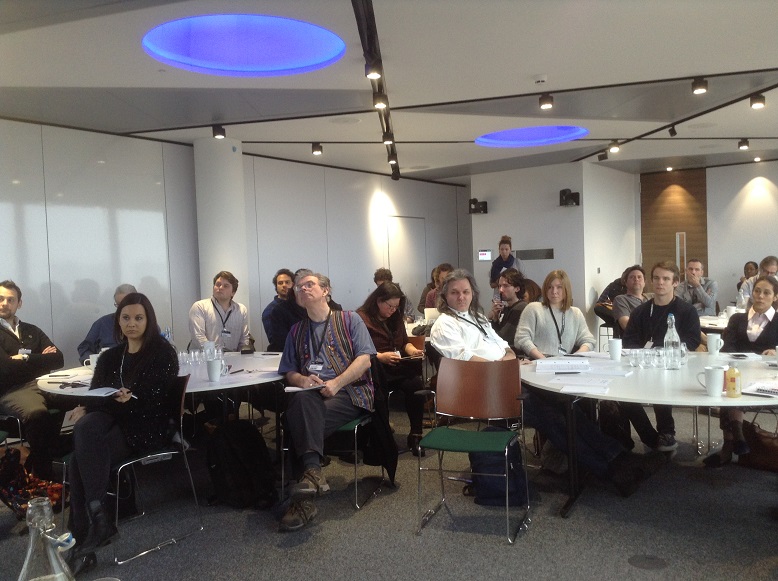
Both sessions produced very lively and interesting discussions between the panellists and the attendees. Questions from music writers and composers concerned ownership of rights in cases of joint authorship. This led to a stimulating conversation on the relationship between copyright law and contracts, and the importance of writing agreements at early stages of production in order to avoid expensive disputes afterwards. However, one of the revelations of the discussion was that songwriters and composers – especially when starting out – tend not to think about music as a ‘business’. Therefore, often they do not sign those agreements that could prevent arguments with other rights holders ‘when the money comes in’.
Other points of discussion included the challenges that digital distribution of music poses for copyright and the problematic nature of the ‘making available’ right. In general, the interaction between speakers and the audience generated an interesting landscape of the complexity of copyright law for the music sector, where different exclusive and related rights can be held by different people involved in the production of a piece of music. During my talk, I showcased how CopyrightUser.org tries to make complex copyright information accessible through explanatory guidance produced by leading copyright experts and illustrated through compelling multimedia materials. The event ended with Dominic Young explaining how the Copyright Hub aims to make licensing easier, by hiding the complexity of copyright behind a technology that would help copyright work the way the Internet works.
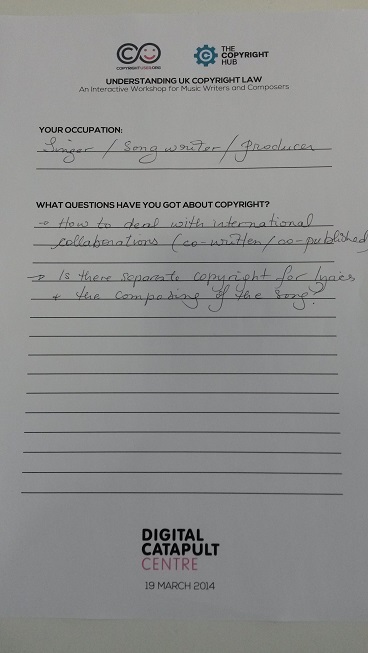
From the point of view of CopyrightUser.org, these workshops are a great opportunity to explore what people, businesses and organisations operating in different sectors of the creative economy do not currently know but want to know about copyright. In addition to carrying out a series of copyright education initiatives, we are also planning to produce specific guidance for sectoral groups such as photographers, archives, libraries, video game developers, and music writers and composers. According to the bottom-up methodology and the engagement with primary creators that have characterised the Copyright User project since its very beginning, we are starting this process by gathering data on what the major copyright concerns are for these groups. During this workshop as well as the one before this (with photographers and illustrators), the attendees were asked to fill a form with their copyright questions.
